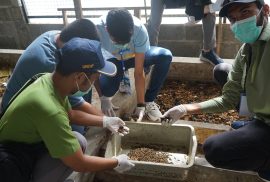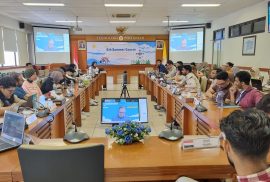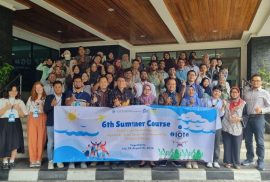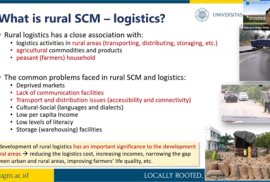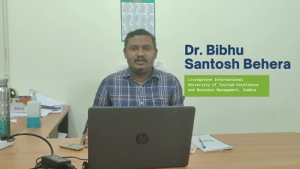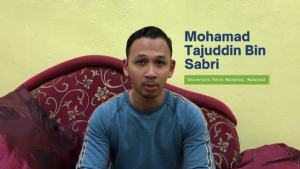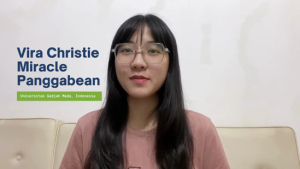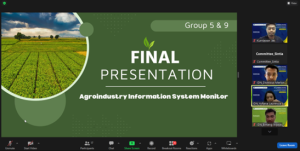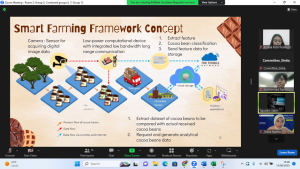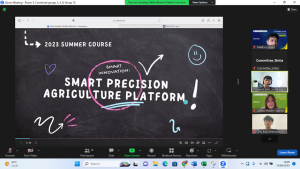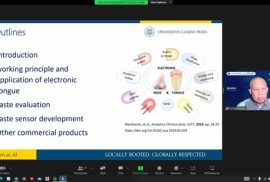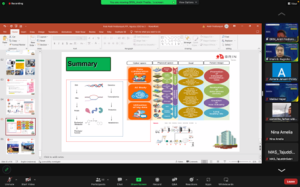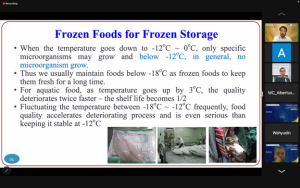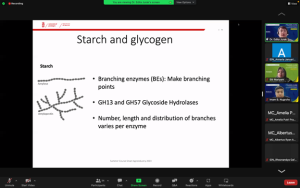During our field trip to the Pusat Inovasi Agroteknologi (PIAT) at Universitas Gadjah Mada (UGM), we explored innovative solutions to address Indonesia’s ongoing waste management challenges. The issue of imperfect waste management has become increasingly pressing, especially with the closure of the garbage landfill in Yogyakarta this year. This has highlighted the urgency of improving waste processing, which ideally begins at the household level or on a small scale.
At UGM’s RINDU plant, we witnessed firsthand the advancements in waste processing. The facility’s transformation of the landfill site was impressive, showcasing the before-and-after scenarios demonstrating their methods’ effectiveness. Food waste, a significant component of the waste stream, is managed at UGM using Black Soldier Flies and Maggot troops. This innovative approach reduces waste and provides sustainable solutions for feed production.
Drying process of Black Soldier Fly Larvae (Maggot BSF) for Animal Feed
Speaker: Arif Mujarab, PIAT, Universitas Gadjah Mada
Arif Mujarab, a worker at the Pusat Inovasi Agroteknologi Terpadu (PIAT) at Universitas Gadjah Mada, with two children and several years of experience, provided an overview of the process for drying black soldier fly larvae (BSF) to create animal feed. He explained that the process starts with selecting fresh, live maggots, which are then cleaned and weighed. Although the drying machine at PIAT has a capacity of 5 kilograms, he demonstrated the process using 2 kilograms for quicker results. The maggots are placed in a drying or roasting machine, and the drying process takes around 45 minutes. At the 20-minute mark, the maggots are checked for dryness, and the process continues until they are fully dried and ready for use as feed.
BSF maggot need to be separated into 3 different sizes, the smallest ones are not capable enough to digest organic matter. so they need to be cultivated in order to have a bigger size. the biggest size one are capable to digest all organic matter. the organic matter such as food waste but it needed longer time to proccess the hard part like eggshell.
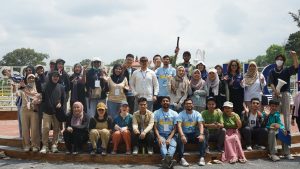 Manufacturing Bottle Caps Using Recycled Materials
Manufacturing Bottle Caps Using Recycled Materials
Speaker: Surono
Surono, who has worked at the facility for 13 years and is a father of two daughters, one of whom is preparing to enter college, discussed the manufacturing process of bottle caps using recycled materials. He described how plastic materials are first shredded into smaller pieces and then heated to a temperature of approximately 180 degrees Celsius for 15 to 17 minutes. Once heated, the materials are pressed and held under pressure for about 5 minutes. The formed bottle caps are then removed from the mold, completing the process.
Internship Experience in Energy and Waste Processing at PIAT
Speaker: Muhammad Ridwan Alfin, Marine Science Department, Universitas Padjadjaran
Muhammad Ridwan Alfin, a student from the Marine Science Department at Universitas Padjadjaran, completed a four-day internship at the Pusat Inovasi Agroteknologi Terpadu (PIAT) at Universitas Gadjah Mada. During his internship, he gained hands-on experience in energy and waste processing, which contrasted with his classroom learning. The practical fieldwork allowed him to apply his academic knowledge directly. He also emphasized the importance of teamwork, which he experienced throughout the internship, and noted that this opportunity has equipped him with valuable skills for his future career.
Our visit included practical experiences, such as hatching maggot eggs and participating in the collection, sorting, drying, and packing of maggots for feed. We also learned how to create eco-enzymes from organic food waste, an initiative that promotes sustainability and environmental responsibility. Additionally, the opportunity to hatch chicken eggs and interact with deer was a delightful experience, adding a fun and educational aspect to our visit.
UGM PIAT is truly making remarkable strides in waste management and sustainability. Their commitment to innovation and education is evident, and it was inspiring to see their efforts in action.
At PIAT FTP UGM, black soldier fly larvae are used for the waste conversation. So first we introduced the BSF life cycle. From egg to produce larvae it takes 7 days. This is one of the easiest and most popular processes in the world. For sustainable waste management, this plant collects waste from the UGM campus area. Then they sort out the waste in different categories like waste from food, waste from plastic etc. At Rindu plant, first food wastes the grinding at grinder machines and then when it comes to powder form they mix milk and some other ingredients to make quality full fertilisers. And lastly there also has a machinery for making granular forms of fertiliser. They shared that this eco-friendly waste management is really profitable.

